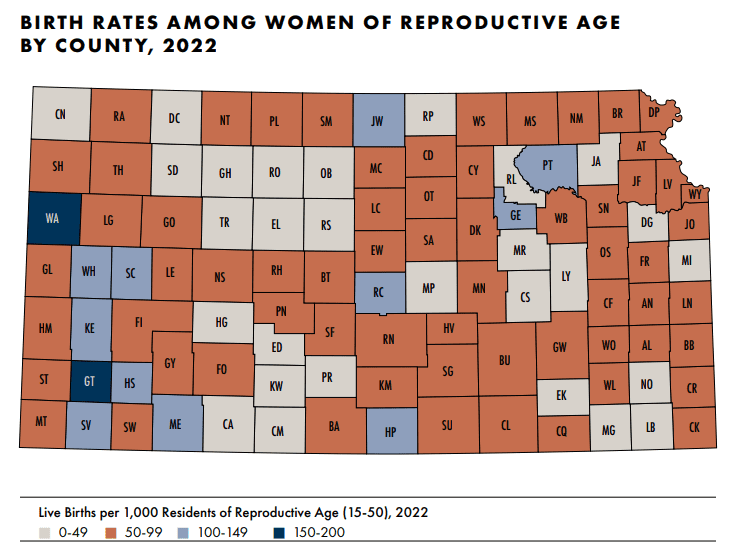By Trish Svoboda
Photo courtesy KUMC/Above: Dr. Karen Weis, PhD, RNC-OB, FAAN, dean of KU School of Nursing Salina and lead author of the report
A recent report highlights the growing challenge of unrecognized costs and workforce shortages threatening rural maternity care in Kansas, potentially leading to more service closures.
Unrecognized costs refer to expenses rural and critical access hospitals face beyond what is recorded in their official cost reports, which are always a year behind. Karen Weis, PhD, RNC-OB, FAAN, dean of KU School of Nursing Salina and lead author of the report, said, “Some of those costs that aren’t realized are when they don’t have the necessary workforce, be it nurses, anesthesia, lab, respiratory therapy, sonography. Then they must hire costly temporary workers, often called travelers.”
Recruiting and keeping maternal care providers in rural areas remains difficult. Many rural hospitals rely on family physicians to provide obstetric care, but when there aren’t enough doctors—ideally at least two or more—these providers struggle to maintain 24/7 coverage, making it hard to sustain maternity services.
Telehealth and mobile clinics help by providing remote prenatal care, especially for high-risk pregnancies, allowing specialists in urban centers to support local providers.
Telemedicine, telehealth, teleradiology, really increases our capability of being able to share images, which is a big role that maternal fetal medicine physicians play and that they review very comprehensive maternal imaging. We can have a person at a higher level of care look at those images and then help the local providers with a plan of care,” said Weis.
However, patients still need access to hospitals capable of delivering babies safely, often requiring long travel in western Kansas.
Some rural hospitals, like the one in Scott City, have temporarily closed maternity services but managed to reopen by recruiting more providers, showing a hopeful path forward.
Experts urge lawmakers to develop new funding and care models that address rural-specific costs and workforce needs to preserve and improve maternity care access.














